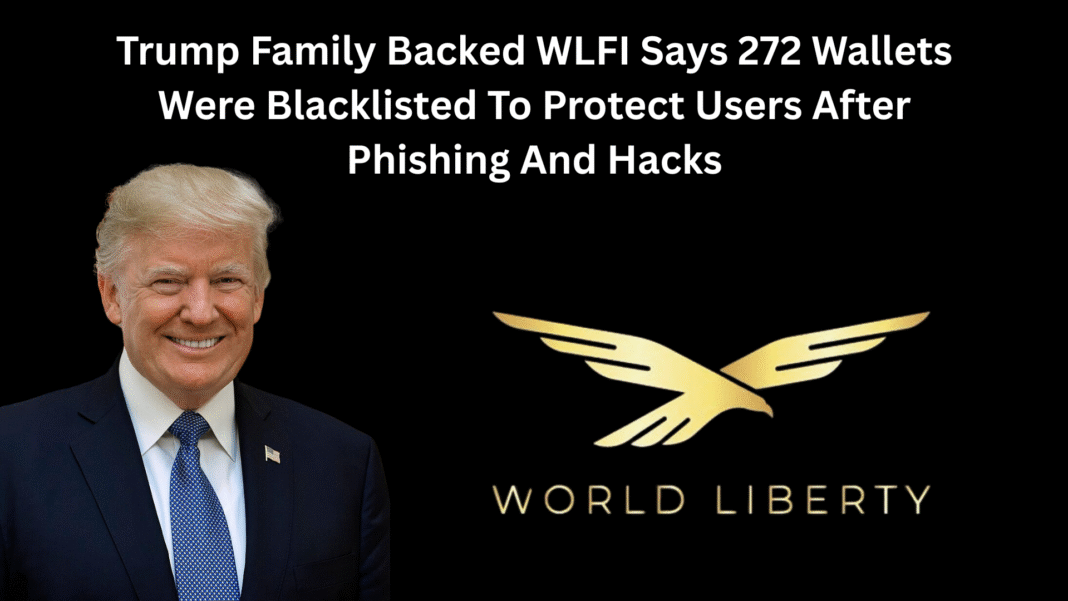WLFI posted on X (Twitter) that it had blocked 272 wallets over the past few days to prevent theft and assist users who had lost access. The company said it acted to protect holders and to investigate suspicious on-chain activity.
The message came from WLFI’s official account and was aimed at the project’s community. WLFI said it intervenes only to prevent harm, not to silence ordinary trading.
What WLFI posted
WLFI wrote that the blacklists are a small slice of all holders. The firm said it acted after community alerts and internal signals flagged high-risk accounts.
WLFI stressed that the moves aim to secure funds while the team works with affected owners. The company also told users to rely only on posts from WorldLibertyFi and its official website.
Also Read: Trump Family Wealth Surges By $6 Billion Following Success of World Liberty WLFI Token Launch
The breakdown
WLFI gave numbers for the 272 wallets, and it said 215 wallets, about 79.0% of the total, were tied to a phishing attack. The firm said staff stepped in before hackers could drain funds and are now helping rightful owners secure and move assets.
Another 50 wallets, or about 18.4%, were blacklisted at the request of owners who contacted support and reported compromises. Five wallets, or about 1.8%, were flagged for high-risk exposure and remain under security review.
One wallet, about 0.4%, is suspected of moving other holders’ funds and is under a thorough internal review.
Why WLFI gave these details?
The firm said transparency matters, and it wanted to show the community that blacklists are a protective step, not punishment. WLFI made clear it focuses on on-chain behaviour and security signals. The company said it does not target normal market activity or personal views.
WLFI urged anyone hit by phishing or who suspects a compromise to reach out immediately. WLFI requested tx hashes, screenshots and the wallet address to speed verification. It said privacy is a priority and that investigations look at blockchain data rather than posts or normal trading.
Sun’s Wallet Freeze and Protest
The measures sparked a public protest from Justin Sun, who disclosed that his wallet had been blacklisted along with 595 million WLFI tokens, worth around $104 million.
Sun argued that the freeze violated investors’ legitimate rights and ran counter to the fairness and decentralised ideals that blockchain projects are meant to uphold. He claimed that blocking his tokens undermines both investor confidence and the principle of equal treatment.
The company’s approach underlines a wider debate about safety and governance in crypto. Some community members want fast moves to stop hackers.
Others worry about who decides when a wallet is frozen and how decisions are checked. WLFI tried to address those concerns by giving a breakdown and by urging people to report details if they have credible information.
Also Read: Trump Family Backed WLFI Token Suffers 20% Price Drop, Potential Recovery Ahead?


